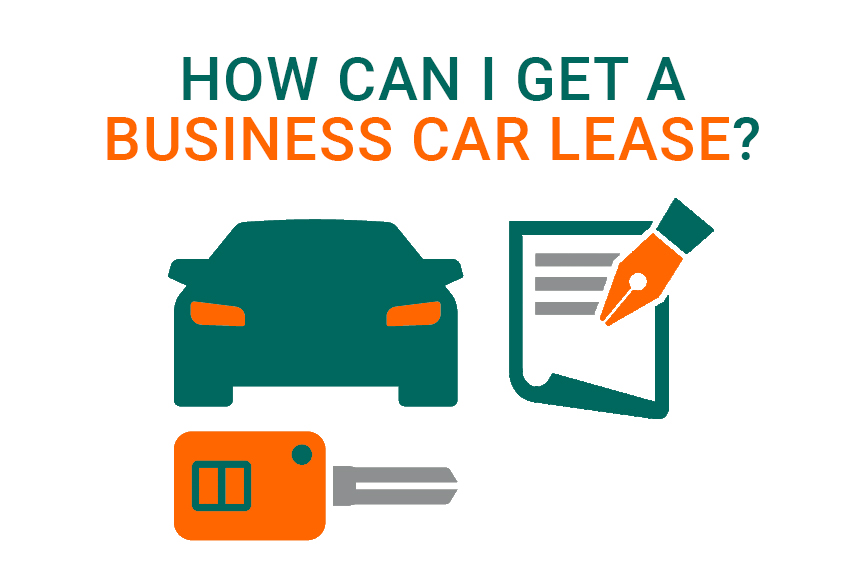Over the last few years, business leasing has grown increasingly popular. But it’s easy to see why. Not only is it cheaper than buying a car or van outright, but it has also proved to be better for businesses that prefer to update their fleet of vehicles on a regular basis.
As it is an incredibly popular option for businesses it’s important that you know what business finance choices are available to you, and which one is right when you’re looking for a new vehicle or vehicles.
In this article, we’ll be looking at the different business lease options that are available, their advantages and disadvantages and the additional things that you should be aware of and consider before you sign on the dotted line.
Why should you get a business car lease?
There are a fair few advantages to getting a vehicle on a business lease, and these include the following.
Duration of the lease
A business lease can be as short as 12 months or as long as 4 years (5 if you are leasing a van). This means that you can replenish your fleet easily and on a regular basis (depending on the length of contract you choose). It also gives you the ability to avoid downtime and high maintenance costs that can prove to be expensive for your business.
VAT benefits
This is something that is limited to specific business lease options and we will be explaining more later in the article if this is something you are interested in finding out about.
Can be good for business accounts
If you have a business lease it can be off-balance sheet, which means that the liability of the finance isn’t shown on your company accounts. However, just as with the VAT benefits we have already mentioned, this is exclusive to some of the business lease options.
Blinded by choice? Thinking about getting a new vehicle for your business but want a better idea of what’s available? Let us help. Sign up for our weekly special offers email and get some of our best offers straight to your inbox.
What business car lease options are there?
As we have previously stated, there are a few different types of business lease. The options you have if you decide to get a vehicle on a business lease are:
- Business Contract Hire
- Business Operating Lease
- Business Finance Lease
Now you know the business lease types available, we’ll talk about each of them in more detail.

What is Business Contract Hire?
Business Contract Hire, which you will often see in vehicle leasing information listed as BCH, is extremely popular with businesses.
If you decide to lease your car with a Business Contract Hire agreement the company will have the vehicle for 1 to 5 years while paying a monthly fee. At the end of the contract, you hand the vehicle back.
What are the pros and cons of Business Contract Hire?
Business Contract Hire definitely has its advantages, if it didn’t then it wouldn’t be such a popular choice for businesses. The advantages of selecting Business Contract Hire include:
- Vehicle Excise Duty (road tax) is usually included in the cost of the contract, for the duration – this can be a great way to budget for what can sometimes be a hefty annual bill
- You don’t have to dispose of the vehicle as once the contract is up you just hand the car (or van) back and start the process of getting another vehicle
- If your business is VAT registered, then you can offset 50% of the VAT on a car and 100% on a van on your company VAT return.
- The finance commitments are “off balance sheet”, which means that the liability of the finance is not shown on your company accounts
Just because there are a number of attractive advantages, does not mean that Business Contract Hire is without its responsibilities. These include:
- You won’t own the vehicle outright – depending on your views this could be a disadvantage. Some businesses like the idea of owning their vehicles outright while others don’t.
- It is your responsibility to ensure that the vehicles are serviced throughout the contract. This is an extra cost that you need to take into consideration, however, you would be responsible for maintenance whether you owned or leased the vehicle
- You’ll be subject to fair wear and tear conditions. This is all discussed at the start of the contract. These standards are set by the British Vehicle Rental and Leasing Association (BVRLA). If, at the end of the contract, the car doesn’t meet the standard set then you could incur additional charges
- There are mileage restrictions which aren’t always ideal for companies where staff travel considerable distances as part of their job. If you do end up going over your mileage limit, you will be subject to excess mileage charges.
- One way to ensure that these issues don’t come back to haunt you is to ensure that you discuss your requirements carefully when going over your vehicle leasing options.
Looking for a business vehicle? Contact our experienced vehicle specialists now by requesting a callback or calling us on 01903 538835 now.
What is Business Operating Lease?
Business Operating Lease, which you may sometimes see referred to as BOL, is pretty much the same as contract hire. However, Mercedes is the only manufacturer that offers this deal.
The main difference between Business Operating Lease and Business Contract Hire is that if you get your vehicle with an Operating Lease then the Vehicle Excise Duty is only included for the first year of the contract. After the first year, you will be responsible for paying your Vehicle Excise Duty.
What is Business Finance Lease?
Finance Lease is what people will know as the ‘traditional’ lease agreement option for businesses. It’s more flexible than Business Contract Hire and is ideal for a business when they know their vehicles are going to be:
- Doing excessive mileage
- Likely to suffer from more than the standard fair wear and tear
- Converted for specific purposes – such as refrigeration units
Finance Leases work in the same way as Business Contract Hire in that you make fixed monthly payments for a set period of time. However, when there is a difference when the contract comes to an end.
As we have already mentioned, at the end of a Business Contract Hire agreement you hand the car back, when a Finance Lease comes to an end you are responsible for selling the vehicle on. You then use that money to pay off the remaining balance of the contract. If you make a loss on the sale of the vehicle, then you will need to make up the difference yourself.
At the end of your Finance Lease you can, for a one-off nominal fee, extend the contract for a further year. This will give you a little more time to clear the final balloon payment.
What are the pros and cons of Finance Lease?
As with any financial arrangement, there are many advantages, which include:
- There is some flexibility. You can choose whether or not to have a balloon payment at the end of your contract. It’s important to remember that if you decide against a balloon payment then your monthly payments will be higher
- You have the option of ending the agreement early. You will be charged for this, but it is an option that some like to have
- You are not subject to the fair wear and tear standards set by the BVRLA and you also have no mileage limitations.
Now we’ve talked about the advantages to Finance Leasing we have to ensure that you are aware of the disadvantages that exist so you can make an informed decision. Some of the disadvantages are:
- You won’t own the vehicle. Depending on who you are, this could also be seen as an advantage. It depends on your view and your business requirements
- The insurance will be more expensive as you aren’t the vehicle owner. Insurance companies see this as making you a higher risk which will, therefore, increase your insurance premium
- You may be charged an admin fee. While this is not a common practice it does sometimes happen.
Will I have to pay Company Car Tax?
One of the things you need to think about before you get a Business Lease of any type is company car tax.
If you, or your employees, are using a company vehicle for personal errands then it will be necessary to pay Company Car Tax. Unfortunately, even if you are only using your vehicle for company journeys during the day, if you drive it to and from your home at the beginning and end of the day this also classes as a personal journey.
You don’t have to pay Company Car Tax if you’re leaving the car at your place of work overnight and only using it purely for business purposes such as travelling to client meetings.
If you’re a Partner, in a Partnership, a member of a Limited Liability Partnership (LLP) or you own your business then you will be exempt from Company Car Tax.
How is company car tax calculated?
We have put together a far more detailed article that goes into more depth about Company Car Tax, how it’s worked out and how much you will have to pay depending on your vehicle choices. However, here we are looking at how to work out a ballpark figure for your company car tax bill – if you aren’t exempt.
The amount you will pay is dependent on the CO2 emissions of the vehicle you have leased, or purchased, and the P11d value. It will also depend on your salary and the tax bracket.
As a rule, if Company Car Tax is something you are thinking about then we recommend you remember that the lower the CO2 emissions and the P11d value, the lower the amount of Company Car Tax you are liable for.
If you would like more information about Company Car Tax then we have a more indepth article you may be interested in.
Hopefully, this article has given you a better idea of the options available to you if you are considering leasing a vehicle for your business, as well as making it easier for you to decide which is the best agreement suited to your individual requirements.

